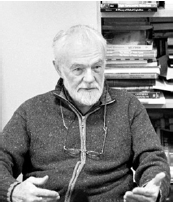David Harvey is Distinguished Professor of Anthropology at the City University of New York, well known for his research and writing on globalisation and social change. Here, Harvey writes about the origins and key precepts of neoliberalism:

Neoliberalism is … a theory of political economic practices that proposes that human well-being can best be advanced by liberating individual entrepreneurial freedoms and skills within an institutional framework characterized by strong private property rights, free markets and free trade. The role of the state is to create and preserve the institutional framework appropriate to such practices … It must … set up those military, defence, police, and legal structures and functions required to secure private property rights and to guarantee, by force if need be, the proper functioning of markets. Furthermore, if markets do not exist (in areas such as land, water, education, health care, social security, or environmental pollution) then they must be created, by state action if necessary. But beyond these tasks the state should not venture. State interventions in markets (once created) must be kept to a bare minimum because, according to the theory, the state cannot possibly possess enough information to second-guess market signals … and because powerful interest groups will inevitably distort and bias state interventions (particularly in democracies) for their own benefit. There has everywhere been an emphatic turn towards neoliberalism in political-economic practices and thinking since the 1970s. Deregulation, privatization, and withdrawal of the state from many areas of social provision have been all too common …
According to the theory, the neoliberal state should favour strong individual property rights, the rule of law, and the institutions of freely functioning markets and free trade. These are the institutional arrangements considered essential to guarantee individual freedoms. The legal framework is that of freely negotiated contractual obligations between … individuals … The sanctity of contracts and the individual right to freedom of action, expression, and choice must be protected. The state must therefore use its monopoly on the use of the means of violence at all costs …
While personal and individual freedom in the marketplace is guaranteed, each individual is held responsible and accountable for his or her own actions and well-being. This principle extends into the realms of welfare, education, health care, and even pensions … Individual success or failure are interpreted in terms of entrepreneurial virtues or personal failings (such as not investing significantly enough in one’s own human capital through education) rather than being attributed to any systemic property …
[T]he state withdraws from welfare provision and diminishes its role in areas such as health care, public education, and social services … The social safety net is reduced to a bare minimum in a favour of a system that emphasizes personal responsibility.
Harvey, David. 2005. A Brief History of Neoliberalism. Oxford: Oxford University Press. pp. 1–3, 64, 65–66, 76. || Amazon || WorldCat
